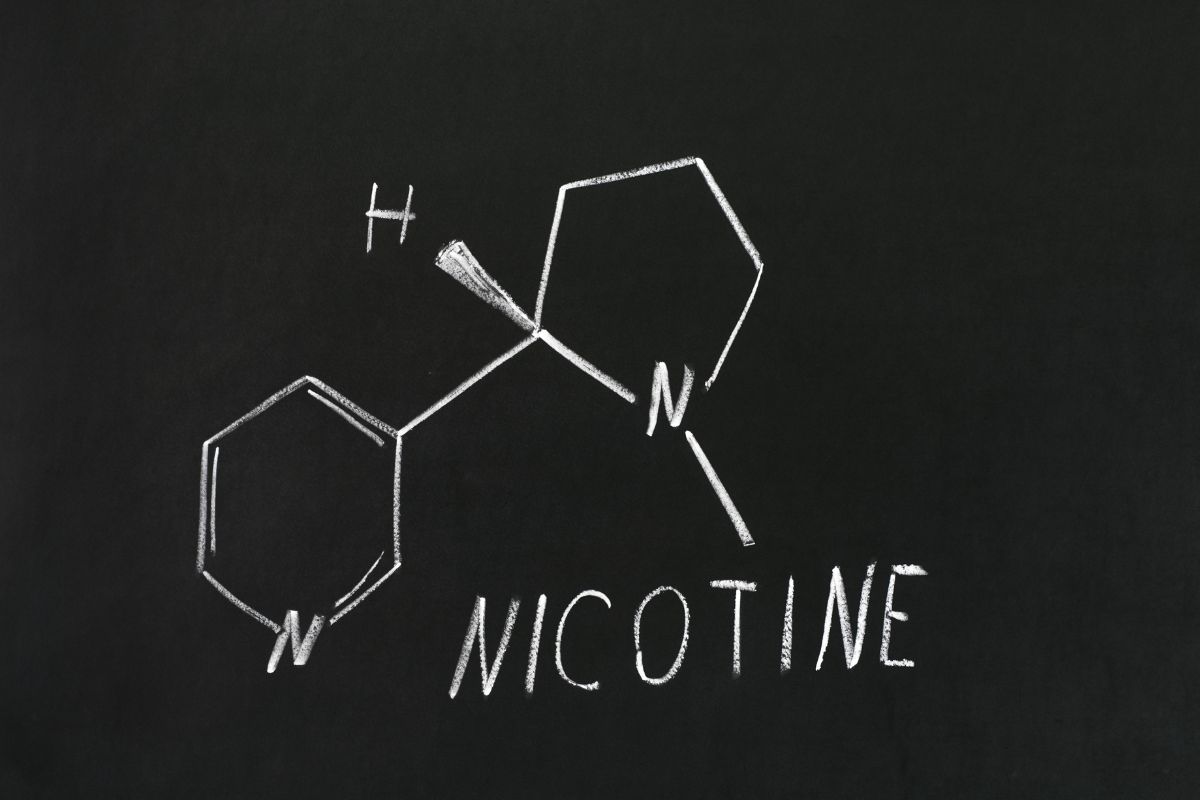The Nicotine High Buzz: Understanding the Effects and Risks
Nicotine is a powerful and addictive substance that is commonly found in tobacco products. When smoked or ingested, it can produce a variety of effects, including a “buzz” or a feeling of euphoria.
While many people enjoy the nicotine high, it is important to understand the potential risks and consequences associated with this substance.
In this article, we will explore the effects of the nicotine high buzz, the risks of nicotine addiction, and strategies for quitting smoking and overcoming nicotine addiction.
Table of Contents
What is the Nicotine High Buzz?
The nicotine high buzz is a feeling of pleasure and euphoria that is often experienced by individuals who smoke or use other tobacco products.
When nicotine is ingested, it stimulates the release of dopamine, a neurotransmitter that is associated with feelings of pleasure and reward.
This release of dopamine can produce a range of physical and mental effects, including increased heart rate, improved concentration and focus, and a feeling of relaxation or stress relief.
NEW CUSTOMER DISCOUNT
Save 15%
15% OFF YOUR ENTIRE ORDER FOR NEW CUSTOMERS USE CODE WELCOME15!


How Does Nicotine Affect the Body?
While the nicotine high buzz can produce pleasurable effects, it is important to understand the potential risks and consequences of nicotine use.
Nicotine is a powerful stimulant that can have a range of physical and mental effects on the body. Some of the potential effects of nicotine use include:
Physical Effects
- Increased heart rate and blood pressure
- Constriction of blood vessels
- Reduced appetite and weight loss
- Increased risk of cardiovascular disease and stroke
- Respiratory problems, such as chronic bronchitis and emphysema
- Reduced lung function and increased risk of lung cancer
Mental Effects
- Improved concentration and focus
- Feelings of relaxation and stress relief
- Increased alertness and wakefulness
- Anxiety, irritability, and restlessness
- Insomnia and sleep disturbances
- Depression and mood swings
Risks of Nicotine Addiction
While the nicotine high buzz can produce pleasurable effects, it can also be highly addictive.
Nicotine addiction is a serious health concern that can have a range of negative consequences. Some of the potential risks and consequences of nicotine addiction include:
- Increased risk of lung cancer, heart disease, and stroke
- Reduced lung function and respiratory problems
- Increased risk of other types of cancer, such as bladder, liver, and pancreatic cancer
- Increased risk of diabetes and other chronic diseases
- Reduced fertility and increased risk of miscarriage and birth defects
- Increased risk of mental health disorders, such as depression and anxiety
Strategies for Quitting Smoking and Overcoming Nicotine Addiction
If you are struggling with nicotine addiction, it is important to seek help and support to quit smoking and overcome your addiction.
There are a variety of strategies and resources available to help you quit smoking and manage your nicotine addiction, including:
Nicotine Replacement Therapy
Nicotine replacement therapy (NRT) is a type of treatment that involves using nicotine replacement products, such as nicotine gum, patches, or lozenges, to help manage withdrawal symptoms and reduce cravings.
Medications
There are a variety of medications that can be used to help manage nicotine addiction, including bupropion and varenicline.
These medications work by reducing cravings and withdrawal symptoms, and can be effective in helping individuals quit smoking.
Counseling and Support
Counseling and support can be an important part of quitting smoking and managing nicotine addiction.
There are a variety of counseling and support resources available, including individual counseling, group therapy, and support groups.
Lifestyle Changes
Making lifestyle changes, such as increasing exercise, eating a healthy diet, and reducing stress, can also be helpful in managing nicotine addiction and improving overall health and well-being.

Conclusion
The nicotine high buzz can be a pleasurable experience, but it is important to understand the potential risks and consequences associated with nicotine use.
Nicotine addiction is a serious health concern that can have a range of negative effects on the body and mind. If you are struggling with nicotine addiction, there are a variety of strategies and resources available to help you quit smoking and overcome your addiction.
With the right support and resources, you can overcome your nicotine addiction and improve your health and well-being.
Browse popular vape collections:
- Nicotine Disposables
- 2000 Puff Nicotine Disposable Vapes
- 2500 Puff Nicotine Disposable Vapes
- 5000 Puff Nicotine Disposable Vapes
- 6000 Puff Disposable Nicotine Vapes
- 7000 Puff Nicotine Disposable Vapes
- Disposable Vape Deals
- Best Vape Brands
- 8000 Puff Nicotine Disposable Vapes
- 9000 Puff Nicotine Disposable Vapes
- 5% Nicotine Disposable Vapes
- Rechargeable Nicotine Disposable Vapes
- Vape Coils
- Dab Wax Pens
- Dab Wax Pen Battery
- Yocan Vapes
- Vape Cases
FAQs about Nicotine high
What are the risks of nicotine addiction?
Nicotine addiction can increase the risk of a range of health problems, including lung cancer, heart disease, stroke, and other chronic diseases. It can also have negative effects on mental health, such as increased risk of depression and anxiety.
Is it possible to quit smoking without medication?
Yes, it is possible to quit smoking without medication. Many people have successfully quit smoking using counseling and support, lifestyle changes, and nicotine replacement therapy.
How can I manage nicotine withdrawal symptoms?
There are a variety of strategies that can be helpful in managing nicotine withdrawal symptoms, including staying hydrated, getting enough sleep, and using nicotine replacement therapy.
How long does it take to overcome nicotine addiction?
The length of time it takes to overcome nicotine addiction can vary depending on a variety of factors, such as the individual’s level of addiction and the strategies and resources used to quit smoking. Some people are able to quit smoking and overcome their addiction relatively quickly, while others may require more time and support.
What are some healthy habits I can adopt to improve my overall health and well-being?
There are a variety of healthy habits you can adopt to improve your overall health and well-being, such as eating a healthy diet, getting regular exercise, managing stress, and getting enough sleep. These habits can also be helpful in managing nicotine addiction and improving your chances of quitting smoking successfully.
Resources:
- https://en.wikipedia.org/wiki/Nicotine_salt?_ga=2.56470763.1724371659.1681286262-1699932226.1672148734
- https://www.mayoclinic.org/healthy-lifestyle/quit-smoking/in-depth/nicotine-craving/art-20045454
- https://www.ncbi.nlm.nih.gov/pmc/articles/PMC1383570/
- https://www.ncbi.nlm.nih.gov/pmc/articles/PMC2928221/







